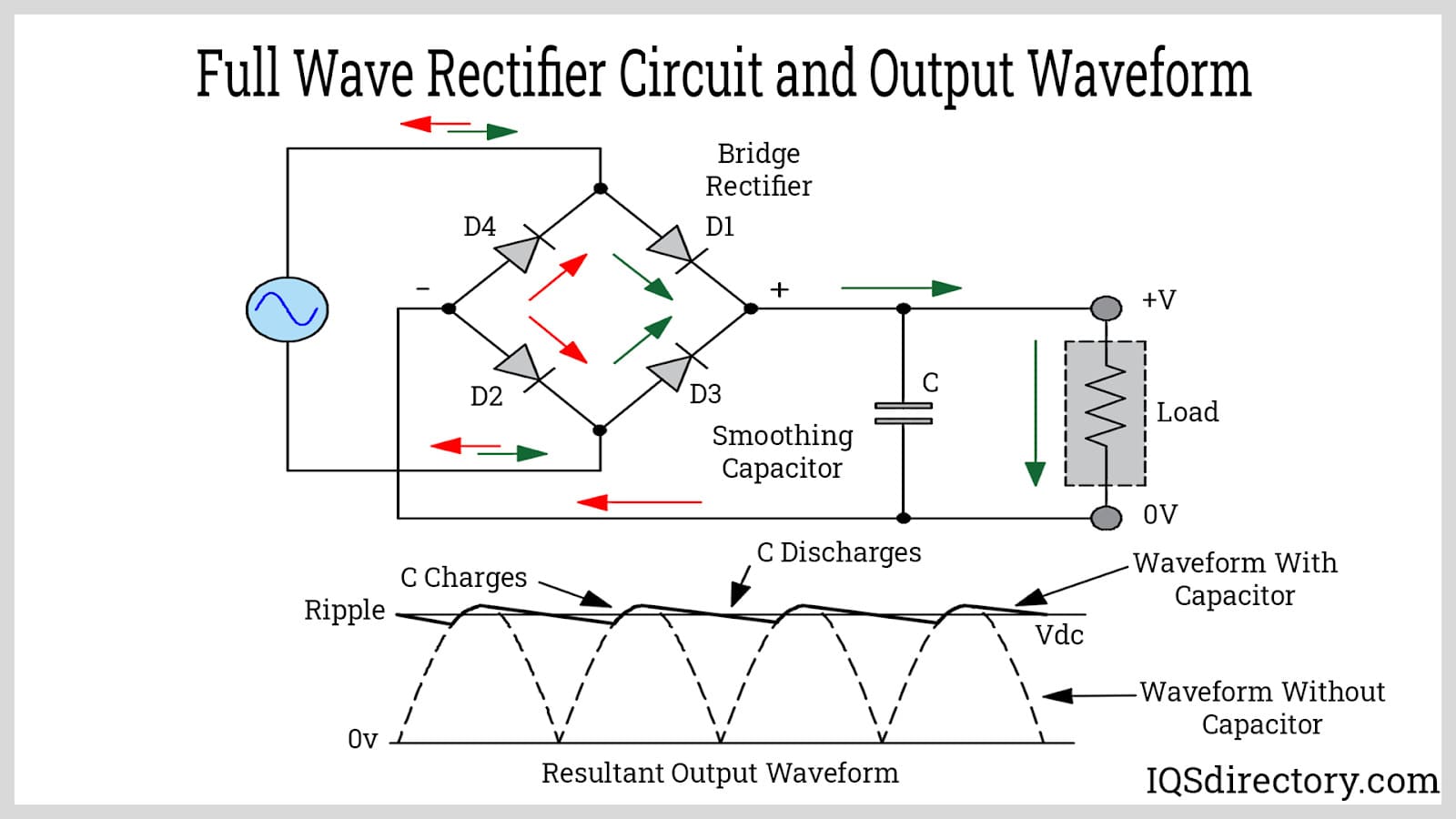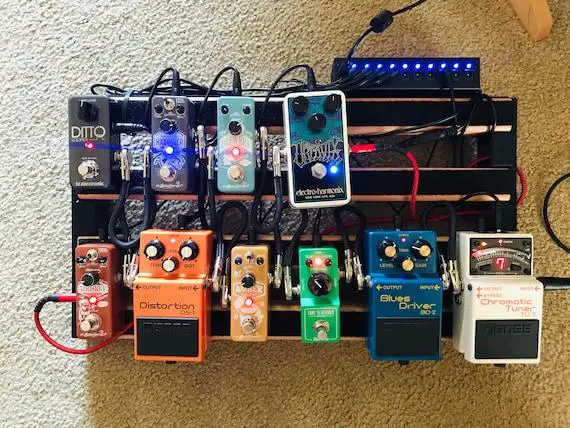Attention all six-string slingers and tone chasers! Are you tired of tripping over a tangled mess of cables and accidentally activating your fuzz pedal mid-solo? Fed up with lugging around a bulky and impractical pedalboard that barely fits in your trunk? Fear not, fellow guitarists, for we have the solution to all your pedalboard woes! In this guide, we’ll show you how to craft the ultimate pedalboard that will make you the envy of all your bandmates and leave your audience in awe. So grab your soldering iron, tune up your axe, and get ready to rock and roll as we dive into the must-have gear for crafting your ideal pedalboard.Building-A-Strong-Foundation-For-Your-Business-9-Key-Components-For-Setting-Up-A-Company-1-1024×576.jpg” alt=”Understanding the Essentials: Building Your Foundation”>
Contents
- 1 Understanding the Essentials: Building Your Foundation
- 2 Selecting the Right Pedals for Your Sound
- 3 Integrating Power Supplies and Noise Reduction
- 4 Exploring Pedalboard Sizes and Configurations
- 5 Signal Chain Mastery: Optimizing Pedal Arrangement
- 6 The Importance of Quality Cables and Connections
- 7 Innovative Accessories for the Ultimate Pedalboard Experience
- 8 FAQs
- 9 In Conclusion, Let’s Pedal to the Metal!
Understanding the Essentials: Building Your Foundation
So you’ve decided to embark on the grand adventure of building your foundation. Congratulations, you brave soul! Whether you’re laying the groundwork for a house, a business, or a friendship, understanding the essentials is key.
First things first, you need to start with a solid base. Think of it as the mashed potatoes of your foundation – boring on its own, but oh-so necessary. Without a strong base, you’re basically building a house of cards. And let’s be real, nobody wants that. So grab your metaphorical shovel and get digging!
Next up, we need to talk about materials. No, I’m not talking about the latest trends in concrete or lumber. I’m talking about the intangible materials – patience, perseverance, and a healthy dose of stubbornness. Building a foundation isn’t for the faint of heart, so buckle up and get ready to ride that emotional rollercoaster.
And finally, don’t forget about the finishing touches. Just like adding sprinkles to your ice cream or a cherry on top of your sundae, the details matter. Take the time to smooth out any rough edges, fill in any gaps, and make sure everything is just right. Because at the end of the day, you want a foundation that’s as sturdy as a rock, not as wobbly as a Jenga tower.
Selecting the Right Pedals for Your Sound
When it comes to , it’s like choosing the perfect pair of shoes for a fancy event – you want something that complements your style and makes you stand out from the crowd. With so many options out there, it can be overwhelming to know where to begin. But fear not, my fellow rockstars, for I am here to guide you through this pedal-filled journey!
First things first, consider the genre of music you’ll be playing. Just like you wouldn’t wear galoshes to a black-tie event, you wouldn’t want to use a fuzz pedal for a smooth jazz gig. Here are some popular pedal genres to get you started:
- Distortion
- Delay
- Reverb
- Chorus
Next, think about the sound you’re trying to achieve. Are you going for a crunchy, gritty tone? Or perhaps a dreamy, ethereal vibe? Experiment with different pedals to see which ones bring your musical vision to life. Remember, it’s all about trial and error – just like finding the perfect pizza topping combination!
Lastly, don’t be afraid to mix and match pedals to create your own signature sound. Want to combine a wah pedal with a phaser for a funky twist? Go for it! The beauty of pedalboards is that they allow you to get as creative as you want. So embrace your inner sonic explorer and let your pedals take you on a musical journey like no other!

Integrating Power Supplies and Noise Reduction
Who knew that power supplies and noise reduction could go hand-in-hand like peanut butter and jelly? It may seem like an unlikely duo, but when integrated correctly, they can create harmony in your electronic devices.
By combining a high-quality power supply with noise reduction techniques, you can say goodbye to those pesky electrical disturbances that disrupt your day. No more static-filled phone calls or buzzing speakers – just smooth, uninterrupted power flowing through your devices.
So, how do you achieve this magical combination? It’s as easy as pie (or should I say, as easy as plugging in a power cord). Follow these simple steps to seamlessly integrate power supplies and noise reduction:
- Choose a reliable power supply: Opt for a reputable brand known for producing clean and stable power.
- Employ noise filtering techniques: From ferrite beads to shielding, there are plenty of ways to reduce unwanted electronic noise.
- Keep your wires tidy: Cluttered cables can lead to interference – keep them organized and separated from other electrical components.
 Pedalboard Sizes and Configurations”>
Pedalboard Sizes and Configurations”>
Exploring Pedalboard Sizes and Configurations
When it comes to pedalboard sizes and configurations, the possibilities are endless. It’s like being a kid in a candy store, except instead of candy, you’re surrounded by stompboxes and cables galore. So, how do you decide on the perfect setup for your rig? Let’s delve into the wild world of pedalboard exploration.
First things first, consider the size of your pedalboard. Are you a minimalist who only needs a few key pedals, or are you a pedal addict who can’t resist adding more and more to your collection? **Size matters (at least when it comes to pedalboards)**, so choose wisely.
Next, think about the configuration of your pedals. Do you want them neatly lined up in a row, or do you prefer a more haphazard, artistic approach? **There are no rules when it comes to arranging your pedals** – do whatever feels right for you.
And let’s not forget about power supply options. **Don’t be caught with dead batteries** in the middle of a killer solo – invest in a reliable power source for your pedalboard.

Signal Chain Mastery: Optimizing Pedal Arrangement
So, you’ve gathered a collection of pedals that would make even the most seasoned guitarist jealous. But now comes the tricky part – arranging them in the perfect signal chain. Fear not, young grasshopper, for I am here to guide you through the mystical art of signal chain mastery!
First things first, let’s start with your gain-based pedals. These are your overdrive, distortion, and fuzz pedals. You want these bad boys as close to your guitar as possible. Think of them as the bodyguards protecting your precious tone from unwanted interference. Plus, the closer they are to your guitar, the cleaner the signal they’ll get.
Next up, let’s talk about your modulation effects – chorus, phaser, flanger, and the like. These should come next in line after your gain pedals. This way, they can work their magic on the already distorted signal, creating a swirling vortex of sonic delight.
Now, for the finishing touches – time-based effects like delay and reverb. These babies should be placed at the end of your signal chain, right before they hit your amp. This way, they can add that final layer of ambience without muddying up the rest of your sound.
The Importance of Quality Cables and Connections
Picture this: you’re about to settle in for a movie marathon on your brand new TV, armed with a cozy blanket and a bowl of popcorn. But wait! Your viewing experience is about to be ruined by poor quality cables and connections. Cue the horror music!
Quality cables and connections are the unsung heroes of the tech world. They might not be flashy or exciting, but they are essential for ensuring a seamless and uninterrupted experience. Think of them as the backstage crew of your favorite concert – you might not see them, but without them, the show can’t go on.
With quality cables and connections, you can say goodbye to fuzzy picture quality, distorted sound, and annoying buffering. Instead, you’ll be treated to crisp visuals, crystal clear audio, and a smooth streaming experience that will make you wonder how you ever survived without them.
Investing in top-notch cables and connections might not seem like the most thrilling purchase, but trust us – your future self will thank you. So next time you’re tempted to go with the cheapest option, remember: quality cables and connections are the unsung heroes that make your tech dreams come true.
Innovative Accessories for the Ultimate Pedalboard Experience
Are you tired of a boring old pedalboard setup? Well, fear not my fellow rockstar, because we have scoured the depths of the music industry to bring you the most innovative accessories that will elevate your pedalboard experience to a whole new level!
Picture this – a LED light strip that not only illuminates your pedals in a rainbow of colors, but also syncs up with your music to create a dazzling light show that will have your audience mesmerized. And if that’s not enough, how about a built-in phone charger that ensures your devices stay juiced up so you never miss an Instagram-worthy moment?
But wait, there’s more! Say goodbye to tangled cables with our custom cable management system that keeps your setup neat and organized. And if you’re feeling extra fancy, why not add a footswitch controller that allows you to effortlessly toggle between different pedal presets with just a tap of your toe?
With these game-changing accessories, your pedalboard will be the envy of every guitarist in town. So go ahead, level up your setup and rock on!
FAQs
What are the essential items needed for a basic pedalboard setup?
Well, my friend, a basic pedalboard is like a pizza without cheese – it’s just not complete! You’ll need your trusty tuner pedal to keep those strings in check, a versatile overdrive pedal for that sweet crunch, a time-based effect like a delay or reverb for adding some space to your sound, and of course, a reliable power supply to keep everything juiced up.
How can I choose the right pedals for my pedalboard?
Ah, the age-old question every guitarist asks themselves. When choosing your pedals, think about the sound you want to achieve. Are you a blues rocker, a metal shredder, or a psychedelic space cadet? Make sure to test out different pedals to see which ones tickle your fancy and complement each other like peanut butter and jelly.
Is it important to have a buffer pedal on my pedalboard?
Oh, you bet your bottom dollar it is! A buffer pedal can prevent tone loss that can occur when you have multiple pedals daisy-chained on your board. It’s like having a trusty sidekick that keeps your sound strong and true, ready to fight off any unwanted signal degradation.
What should I consider when arranging my pedals on the pedalboard?
Arranging your pedals is like arranging a rock band – you want everyone to have their moment in the spotlight! Think about the signal flow of your pedals, placing your essentials like tuner and compression pedals up front, followed by your distortions and modulations, and ending with your time-based effects. And don’t be afraid to get creative with your layout - it’s your pedalboard, after all!
Do I really need to invest in expensive cables for my pedalboard?
Well, my thrifty friend, investing in quality cables is like investing in a good pair of shoes – it may cost a pretty penny upfront, but it’ll save you from a world of hurt down the road. High-quality cables can help reduce noise and signal loss, keeping your sound pristine and your audience begging for more. So go ahead, splurge a little!
In Conclusion, Let’s Pedal to the Metal!
Now that you have the lowdown on crafting your ideal pedalboard with all the must-have gear for guitarists, it’s time to unleash your inner rock god and pedal to the metal! Whether you’re a seasoned pro or just starting out, investing in quality pedals can take your sound to the next level. So go ahead, experiment with different effects, create your own signature sound, and rock on!
Remember, the key to a killer pedalboard is finding the right balance between functionality and versatility. So don’t be afraid to mix and match pedals, try out new combinations, and most importantly, have fun with it! After all, pedalboards may come and go, but the music you create with them will leave a lasting impact on your audience.
So what are you waiting for? Get out there, create your ideal pedalboard, and let your guitar skills shine through like never before. And who knows, maybe one day you’ll be headlining concerts and inspiring the next generation of guitarists to craft their own pedalboard masterpieces. Rock on, fellow guitarists!



